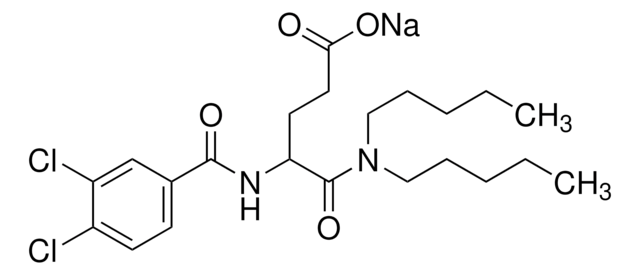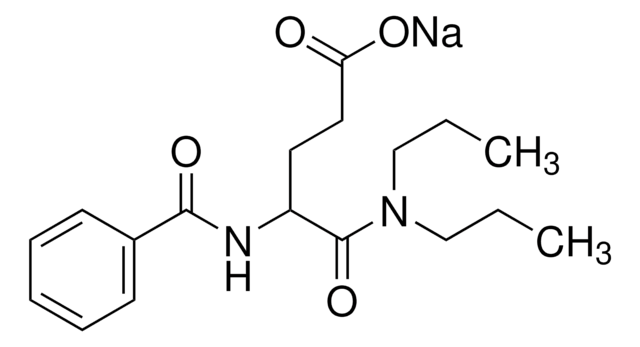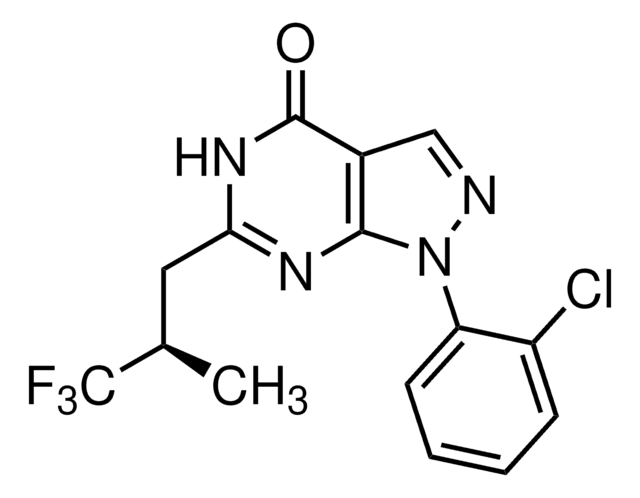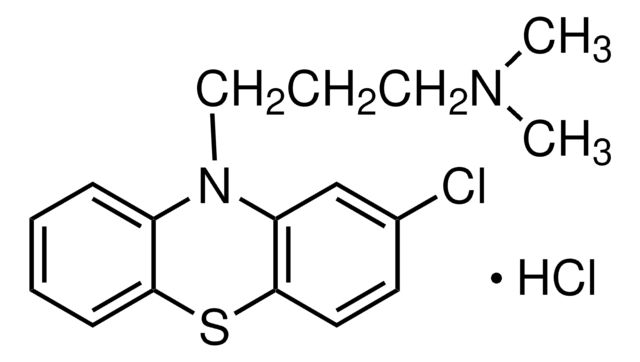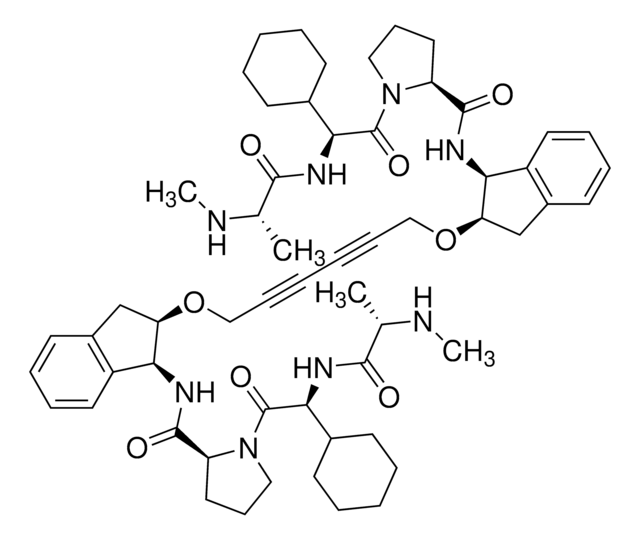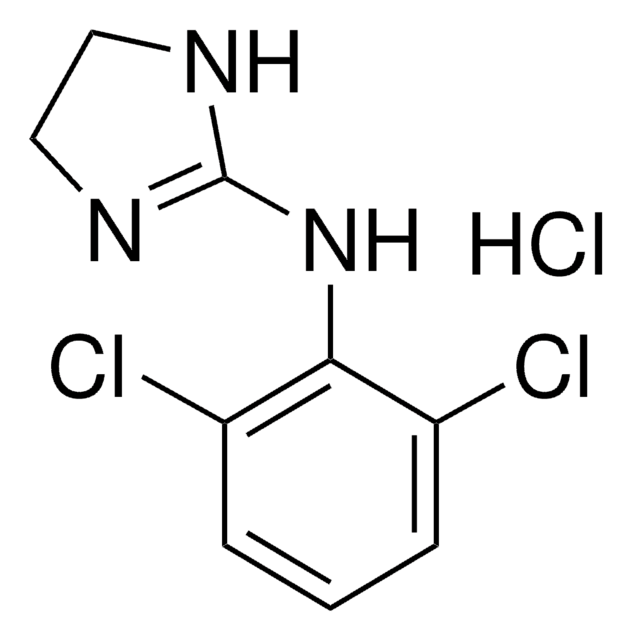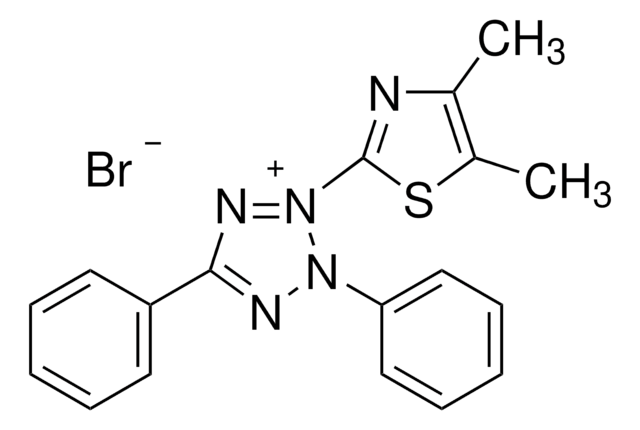Wichtige Dokumente
D3821
Devazepide
≥98% (HPLC), powder
Synonym(e):
(S)-N-(2,3-Dihydro-1-methyl-2-oxo-5-phenyl-1H-1,4-benzodiazepin-3-yl)indole-2-carboxamide, L-364,718, MK 329
About This Item
Empfohlene Produkte
Qualitätsniveau
Assay
≥98% (HPLC)
Form
powder
Lagerbedingungen
desiccated
Farbe
white to off-white
Löslichkeit
DMSO: >5 mg/mL
Ersteller
Merck & Co., Inc., Kenilworth, NJ, U.S.
Lagertemp.
2-8°C
SMILES String
CN1C(=O)[C@@H](NC(=O)c2cc3ccccc3[nH]2)N=C(c4ccccc4)c5ccccc15
InChI
1S/C25H20N4O2/c1-29-21-14-8-6-12-18(21)22(16-9-3-2-4-10-16)27-23(25(29)31)28-24(30)20-15-17-11-5-7-13-19(17)26-20/h2-15,23,26H,1H3,(H,28,30)/t23-/m1/s1
InChIKey
NFHRQQKPEBFUJK-HSZRJFAPSA-N
Allgemeine Beschreibung
Anwendung
Biochem./physiol. Wirkung
Leistungsmerkmale und Vorteile
Signalwort
Danger
H-Sätze
Gefahreneinstufungen
Acute Tox. 1 Oral
Lagerklassenschlüssel
6.1A - Combustible acute toxic Cat. 1 and 2 / very toxic hazardous materials
WGK
WGK 3
Flammpunkt (°F)
Not applicable
Flammpunkt (°C)
Not applicable
Hier finden Sie alle aktuellen Versionen:
Analysenzertifikate (COA)
Die passende Version wird nicht angezeigt?
Wenn Sie eine bestimmte Version benötigen, können Sie anhand der Lot- oder Chargennummer nach einem spezifischen Zertifikat suchen.
Besitzen Sie dieses Produkt bereits?
In der Dokumentenbibliothek finden Sie die Dokumentation zu den Produkten, die Sie kürzlich erworben haben.
Kunden haben sich ebenfalls angesehen
Unser Team von Wissenschaftlern verfügt über Erfahrung in allen Forschungsbereichen einschließlich Life Science, Materialwissenschaften, chemischer Synthese, Chromatographie, Analytik und vielen mehr..
Setzen Sie sich mit dem technischen Dienst in Verbindung.